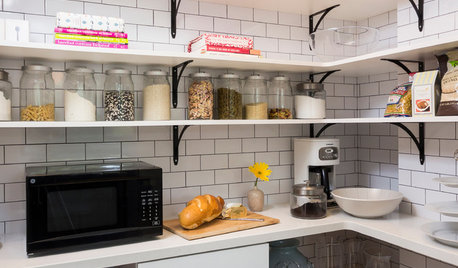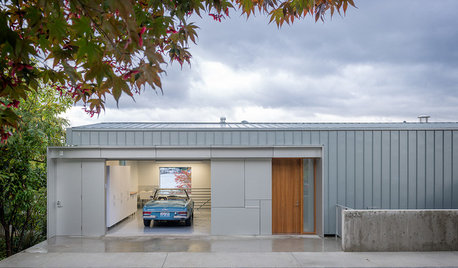Is it time to go organic?
hogan_nj
15 years ago
Related Stories

DECLUTTERINGHow to Declutter Without Going Minimalist
Here are 10 ways to get your home tidy and organized while keeping that personal touch
Full Story
MOST POPULAR10 Reasons to Get Rid of More Clutter
From a calmer mind to a more workable closet, the benefits of streamlining are just a few trash bags away
Full Story
BATHROOM DESIGNGo Au Naturel in the Bath With Beautiful Stone
Add rocks and pebbles to your bathroom design for organic texture and practicality too
Full Story
DECORATING GUIDESA By-the-Numbers Guide to Going Graphic
Adding life — not to mention organization — to your space can be as easy as 1, 2, 3 with a little paint and imagination
Full Story
PRODUCT PICKSGuest Picks: Go Bright and Mod in the Home Office
Be inspired, organized and productive in a home office filled with sleek furnishings and colorful accessories
Full Story
WORKING WITH PROSGo Beyond the Basics When Interviewing Architects
Before you invest all that money and time, make sure you and your architect are well matched beyond the obvious levels
Full Story
MATERIALSAn Architect Shares His Go-To Materials
Aluminum doors, porcelain tiles, polished concrete. Here are the features and finishes this professional returns to time and again
Full Story
GREEN BUILDING7 Everyday Ways for Going Greener at Home
Build in Some Automatic Ways to Save Time, Money and the Earth's Resources
Full Story
HOME TECHGo Ahead: Embrace Your Home Technology
It's time to make peace with the gadgets, wires and TV screens that serve us so well
Full Story
MORE ROOMSThe Family Home: Going Greener
Between helping with homework and trying to keep the house even minimally clean, who has time for green? You do with these simple steps
Full Story





bpgreen
Kimmsr
Related Professionals
Londonderry Landscape Architects & Landscape Designers · Wrentham Landscape Architects & Landscape Designers · Folsom Landscape Architects & Landscape Designers · Forest Acres Landscape Architects & Landscape Designers · Milwaukee Landscape Architects & Landscape Designers · Firestone Landscape Contractors · Kahului Landscape Contractors · Norridge Landscape Contractors · Easton Driveway Installation & Maintenance · Fremont Driveway Installation & Maintenance · Sudley Swimming Pool Builders · Syracuse Fence Contractors · Cartersville Fence Contractors · Castle Rock Fence Contractors · Corona Fence Contractorssandyzz
skizot
bpgreen
dchall_san_antonio
Kimmsr
dchall_san_antonio
skizot
bpgreen
dchall_san_antonio
skizot
dchall_san_antonio
okcdan
skizot
okcdan
skizot
okcdan